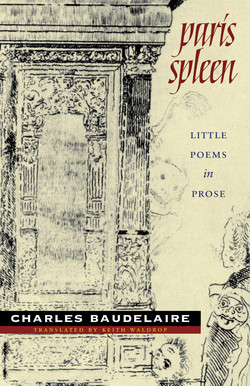Читать книгу Paris Spleen - Charles Baudelaire - Страница 7
На сайте Литреса книга снята с продажи.
FOR ARSÉNE HOUSSAYE
ОглавлениеDear friend, I send you a work no one can claim not to make head or tail of, since, on the contrary, there is at once both tail and head, alternating and reciprocal. Consider, I beg you, how admirably convenient this combination makes it for each and all — you, me, the reader. We may stop whenever we like, I my daydream, you the manuscript, the reader his reading — whose stubborn will I would not hold to the unbroken thread of some superfluous plot. Cut out any vertebra and the two pieces of this serpentine fantasy will easily rejoin. Chop it into many fragments and you will see how each is able to exist apart. Hoping some of these stumps will be lively enough to please and amuse you, I make bold to dedicate to you the entire snake.
I’ve a small confession to admit to you. In leafing through, for at least the twentieth time, the famous Gaspard de la Nuit of Aloysius Bertrand (a book known to you and to me and to a few of our friends, don’t we have the right to call it famous?) that the idea came to me to try something analogous, applying to the description of modern life — or, rather, to a certain modern and more abstract life — the procedure he applied in painting a life long gone, strangely picturesque.
Which of us has not, in his ambitious days, dreamt the miracle of a poetic prose, musical without rhythm or rhyme, supple enough and striking enough to suit lyrical movements of the soul, undulations of reverie, the flip-flops of consciousness.
Above all, it’s from being in crowded towns, from the criss-cross of their innumerable ways, that this obsessive ideal is born. Have you yourself, dear friend, not attempted to translate into song the strident cry of the Glazier,1 and to express in a lyric prose all the distressing possibilities his cry sends even to the dormers through the street’s upmost haze?
But, truly, I’m afraid my jealousy has not ended happily. The work hardly begun, I realized that not only did I remain far below my mysterious and brilliant model, but also that I had made something (if this can be called something) singularly different, mischance anyone else would doubtless brag about, but which profoundly humiliates a mind that considers the poet’s highest honor to have accomplished just what he proposed to do.
Your most affectionate, C. B.
1. Houssaye’s “La Chanson du Vitrier” is in prose.
